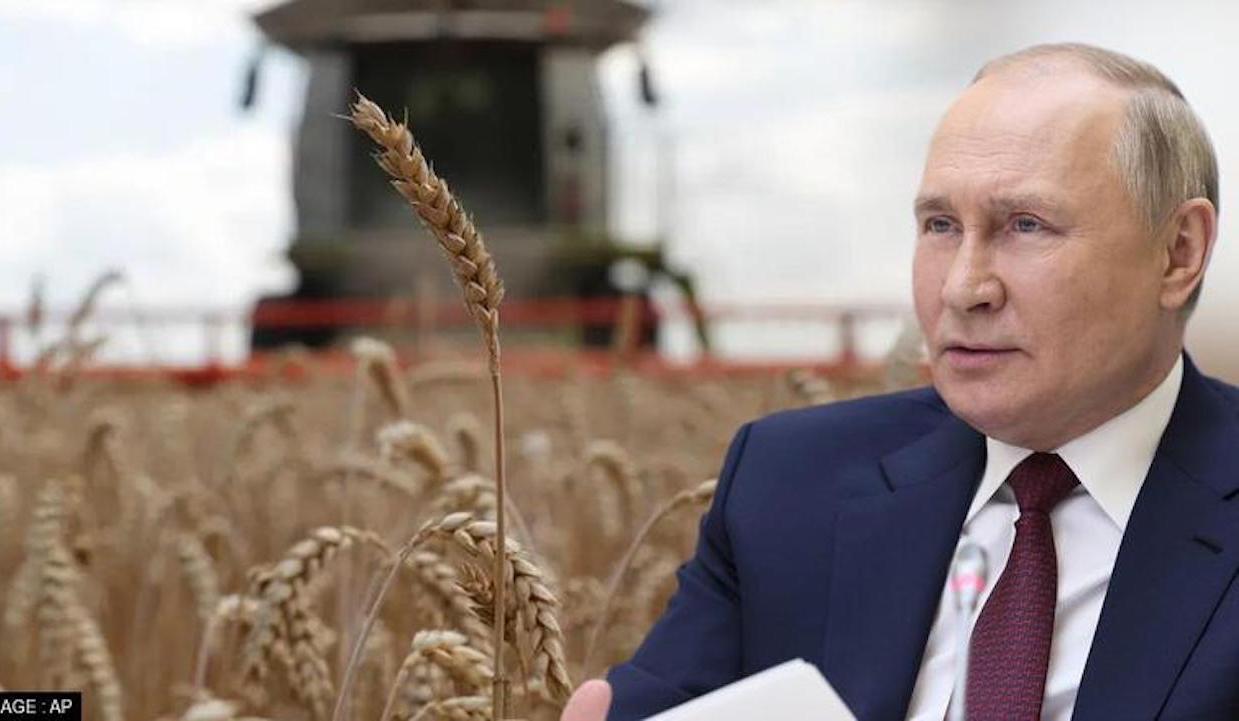Black Sea Grain Deal Stopped by Russia: Risks of a Western Food Crisis. Many Losses for Turkey Duties and US Companies

Introduction by Fabio Giuseppe Carlo Carisio
The Black Sea Grain Initiative deal has officially ended. This was stated by the Kremlin’s spokesman, denying Turkey’s advances on an imminent renewal of the agreement signed last summer between Ankara, Moscow, Kiev and the United Nations.
This meant the withdrawal of safety guarantees for shipping, the ending of a maritime humanitarian corridor and the disbanding of the Joint Coordination Center at the mouth of the Black Sea in Istanbul established to monitor the implementation of the deal.
In recent days, the UN Secretary General had written to the Russian president to make him aware of the need for renewal in order to get the grain to poor African countries.
But Putin had already pointed out that Ukraine’s wheat ended up mainly on Western markets, as denounced by a United Nations official.
This even led to the clamorous protest of 5 European Union nations who had to face unfair competition at reduced prices due to the tons of surplus cereals arriving in their countries.
The Risk of Hunger in the European Union
This is why the interruption of the agreement on wheat will certainly make European farmers happy, as they will see the price of the precious foodstuff rise. But it could lead to a further economic crisis with price increases or even unjustified speculation on the products of the supply chain (bread, pasta, etc.).
The most significant losses will be recorded by Turkey which will see a considerable reduction in customs duties for the transit of ships in the Bosphorus Strait and by the American multinationals (including those of Bill Gates) which now hold a large part of the wheat plots in Ukraine.
The lack of an agreement on the grain deal may cause a food crisis, says Manuel Torrero, representative of the Spanish Young Farmers Association (ASAJA).
“We must be careful, we must wait for several days; maybe, the sides will change their position,” he noted. “We hope that the scenario will be reversed and the very important agreement [will be reached], because, in the end, it affects the movement of grain on a global level,” Torrero told TASS.
He believes that the lack of the agreement “would be very dangerous and could lead to a certain food crisis.”
It should add to the uncertainties on the crude oil market, caused by the cuts decided by Russia and OPEC in response to the depreciation of black gold caused by the Price Cap imposed by the G7 countries on Russian oil.
And it would put at risk about a quarter of the 447 million inhabitants of the European Union.
Last year, 95.3 million people in the European Union, or 21.6% of the population, were at risk of poverty or social exclusion.
Russian Oil Affairs Growing in Arab and Asian Countries thanks to Western Sanctions
This was announced by Eurostat, specifying that the figure remained stable compared to 2021, when 95.4 million people were at risk. The risk of poverty or social exclusion, underlines the European Statistical Office, “is higher” for women than for men (22.7% compared to 20.4%) and over a fifth (22.4%) of European families with dependent children is at risk.
The highest values were observed in Romania (34%), Bulgaria (32%), Greece and Spain (both 26%). Italy is above the European average at 24.4%, with 14.3 million people at risk. The lowest shares were recorded in the Czech Republic (12%), Slovenia (13%) and Poland (16%).
Kremlin: “Black Sea grain deal is terminated”
by Russia Today
The agreements underpinning the controversial Black Sea grain deal have been “terminated,” the Kremlin announced on Monday morning. Spokesman Dmitry Peskov said that Russia will immediately return to the arrangement when all parties concerned implement the previously agreed steps.
Speaking at a press briefing on Monday – the day the deal expired – Peskov said the “Black Sea agreements effectively ceased to be in effect today.”
According to the Kremlin spokesman, “as soon as the Russian conditions are met, the Russian Federation will return to the deal… The Grain Deal has come to a halt.”
Peskov stressed that the other signatories have yet to honor some of the points of the agreement with respect to Russia. Russian Foreign Ministry spokesperson Maria Zakharova stated that Moscow has officially notified Türkiye, Ukraine, and the UN that it will not renew the agreement.
Last Thursday, Russian President Vladimir Putin warned that Moscow would “suspend participation in this deal” unless its food and fertilizer exports were unblocked.
He described the arrangement as a “one-sided game all along,” adding that “not a single goal linked to the interests of the Russian Federation was met.” Putin also stressed that, despite this fact, his country had extended the deal numerous times over the past year.
Putin “Temporarily” Nationalizes Assets of Western Companies
Formally known as the Black Sea Initiative, the agreement between Moscow and Kiev was mediated by the UN and Türkiye last summer. Accompanying the deal was a Russia-UN memorandum aimed at facilitating unimpeded Russian agricultural exports.
The document, among other things, called for the admission of Russia’s major agricultural lender, Rosselkhozbank, back into the SWIFT payment system, as well as enabling deliveries of spare parts for agricultural machinery, sorting out insurance and logistics and “unfreezing” Russian assets.
While the agreement was originally touted as a mechanism for averting famine in poorer nations, the vast majority of Ukrainian grain exported as part of the deal ended up in Europe instead, Moscow claimed.
Originally published by Russia Today
Russia to Continue Food Supplies to Global South Despite Black Sea Grain Deal Suspension
“Russia’s decision to end the grain deal was expected,” Dr. Anuradha Chenoy, a retired professor from the Centre for Russian and Central Asian Studies at Jawaharlal Nehru University, told Sputnik as reported by Ekaterina Binova. “The collective West and Ukraine have continuously violated their part in the Grain Agreement as signed between Russia, Turkiye and the UN.”
Dr. Chenoy has no doubts that Russia will find a way to transport its own grain to poor developing countries.”The last time the grain deal was ended, Russia sent many shiploads of grain to the countries of the Global South that needed them most. This was especially acknowledged by the African Union. I expect Russia will likely do the same,” Chenoy said.
Despite the burden of sanctions, Russia managed to export over 15 million tons of grain, as well as a large amount of mineral fertilizers by November 2022. More than 90% of deliveries went to countries in Africa and Southeast Asia, Russian First Deputy Prime Minister Andrey Belousov told journalists at the time.
This spring, the Russian Federation supplied 4.9 million tons of wheat to foreign markets in May; five million tons in April; and 5.2 million tons in March. Among buyers of Russian grain are Egypt, Yemen, Brazil, Bangladesh, Oman, Mexico, Mozambique, Tunisia, Senegal, Tanzania and Rwanda, to name but a few.
Extract by Sputnik International



